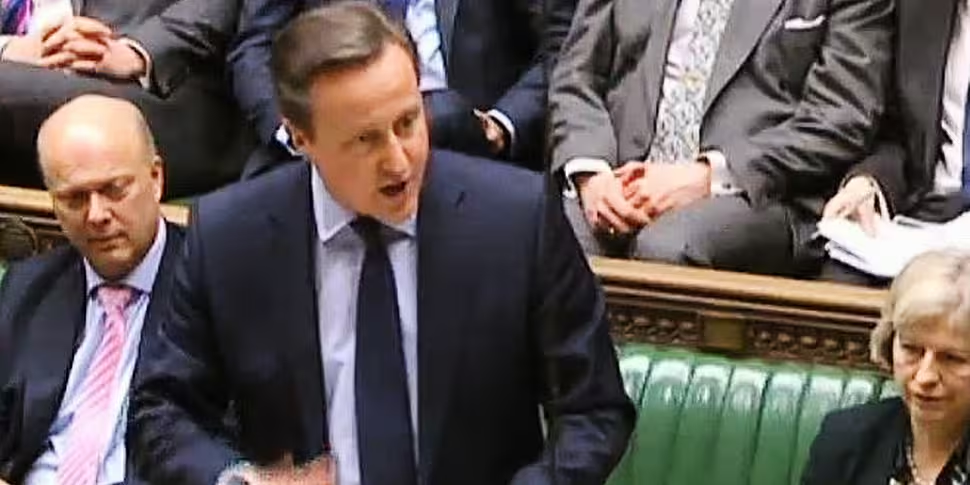David Cameron has told MPs there could be no second referendum if the UK votes to leave the EU on 23 June.
The British prime minister is addressing the Commons after a week in which he struck a deal for a reformed relationship with Europe and announced 23 June as the date for the EU referendum.
Mr Cameron was dealt a blow on Sunday when Boris Johnson declared he will support the Out campaign, effectively putting himself at the head of the campaign for an exit.
The idea of a second referendum option has reportedly been floated by Mr Johnson as a way of getting further concessions from the EU.
But Mr Cameron told MPs the June vote would be "final".
He said: "Sadly, Mr Speaker, I have known a number of couples who have begun divorce proceedings but I do not know of any who have begun divorce proceedings in order to renew their marriage vows."
The prime minister paid tribute to Taoiseach Enda Kenny, who he said is "probably one of the strongest voices in support of Britain's renegotiation":
Mr Cameron also seemed to make reference to the London mayor's motives in campaigning for Out amid speculation Mr Johnson has ambitions to be the next prime minister.
"I am not standing for re-election," he said. "I have no other agenda."
Mr Johnson restricted his contribution to a short question about how the agreed EU deal would return sovereignty to the UK parliament.
Mr Cameron responded: "It carves us forever out of ever closer union, it means that the ratchet of the European Court taking power away from this country cannot happen in future."
The prime minister also warned it would take "years and years" for the UK to negotiate trade deals with Europe if the Out campaign wins.
British Labour leader Jeremy Corbyn also put forward the case for In.
He told MPs: "We believe that the European Union has brought investment, jobs, and protection for workers, consumers and the environment, and we are convinced that a vote to remain is in the best interests of the people."
A dissenting voice came from employment minister Priti Patel, one of seven MPs who attend cabinet backing the Out campaign.
She said: "EU courts and politicians will still be in charge of our borders, our courts and our economy. The deal is not legally binding and can be ripped up by EU judges after our vote.
"Even if it did come into force it would change just 1% of the EU Treaties."
The Democratic Unionist Party (DUP) has also told the British House of Commons that the party will campaign in Northern Ireland in favour of the UK leaving the EU.
The DUP's Nigel Dodds says "we don't have as a result of [Mr Cameron's] deal the control over our sovereignty, over our borders or over our finances".









